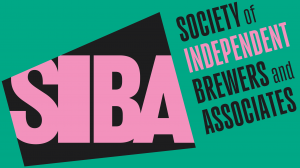Flexibility on Destruction of Beer in Pub Cellars
This page contains the latest guidance on the destruction of beer during the Covid-19 crisis. To return to the main SIBA Covid-19 page please visit www.siba.co.uk/Coronavirus
HMRC has issued new guidance on reclaiming duty on beer destroyed in pub-cellars. The BBPA has also produced a best practice guide as well as guidlines for the retrieval of beer and SIBA has published a checklist for breweries. There is also a options for disposal of waste document from BBPA. Currently the destruction of beer must be supervised by a representative from a brewery (for example an Authorised Company Representative).
Designated pub personnel will be permitted to carry out the destruction of spoilt beer on their own premises without the need for an Authorised Company Representative, providing the brewer claiming the relief is satisfied that destruction has taken place and retains suitable evidence. This evidence can be in the form of a digital recording.
Breweries will continue to be required to have:
- an audit trail confirming the destruction of duty paid beer
- evidence of a full credit of the duty paid, or replacement of the goods to your customer or the owner of the goods at the time they became spoilt
- the need for breweries to maintain their spoilt beer records.
Destruction away from registered premises will need to continue to comply with other regulatory conditions; for example, those of the Environment Agency. HMRC will give at least 30 days’ notice before they withdraw these temporary measures.
SIBA has received much needed clarification on the new guidance. HMRC clarified that it is the passing on or crediting of beer duty to the customer and not the full value of the beer that needs to be evidenced in order for the brewer to make a successful claim. The online guidance has now been updated. They also confirmed that Notice 226 will also be amended in due course to make this clearer.
Usually beer duty claimed back from HMRC for spoilt beer is credited against a brewery’s next return. During this time when many breweries are not producing any new beer, they may not have any beer duty to pay.
HMRC has confirmed that they can provide repayments to breweries in these cases. To do so, please call the Beer Duty payments and returns team directly on 03000 583920 which is published here –
https://www.gov.uk/government/organisations/hm-revenue-customs/contact/alcohol-duties
If you have arranged a Time to Pay arrangement, then the repayment will be deducted from any monies owed.
Water Companies and disposal
When disposing of beer, pubs and breweries need to consider the environmental impact and comply with regulatory conditions and should contact their water retailer to understand any restrictions of disposing of large volumes of liquid.
Anglian Water, Severn Trent and Thames Water have released Regulatory Position Statements regarding the destruction of beer/cider via the public sewer system.
26/6 – The Government updated its guidance to include:
Spoilt beer should be managed by following the food and drink waste hierarchy, with disposal to the sewer considered as the last option. Publicans should seek permission from the owning brewer before making arrangements to return, re-purpose or dispose of beer.
Where a risk assessment shows that it is safe to remove full containers of beer from the premises, disposal to the sewer should be avoided and other options for management of spoilt beer should be used. For example, spoilt beer may be re-purposed as an addition to animal feed, contact James McCulloch at the Agricultural Industries Confederation (AIC) for more information on how to supply spoilt beer directly to farms.
Where re-purposing of beer is not possible, publicans should contact their water company who will provide instructions on how to safely dispose of beer into public sewers. Applications to water companies can be made individually by a publican or on behalf of multiple sites by the operating company. It is important to choose only one approach as duplication will cause further delay to the approval process.
